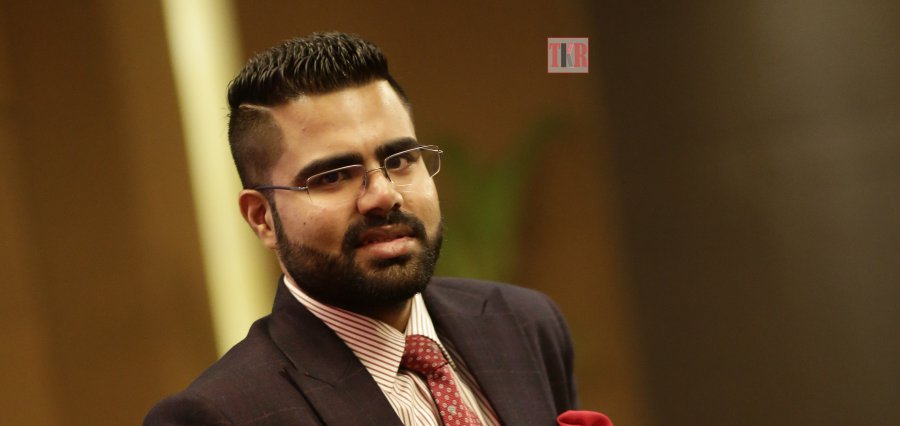There’s no doubt that management education is taking significant turns in India as well as abroad. With the changing demand of employers and rising dissatisfaction among the youth, change is the only reasonable solution we can look at.
A major concern with the typical MBA is the fact that students are well versed with the theory part of the curriculum but are not able to apply it in the real work situation. Also, apart from few B-schools In India, there is no guarantee that a student would get a well-paying job.
Global View
Those times have gone when the managers were only supposed to handle the activities within their country. With globalization came increased inter-connectivity with people outside our native culture, religion and region. It’s impossible to not be part of the change as it will only lead to descent of the brand or a company.
There are such institutes who have understood the need and have opened campus outside their origin. They have alliance with elite business schools who have already established themselves. They get into partnership with the local college or a university to provide their student an opportunity of exchange programs.
But it still has long way to go in order to become completely globalized.
Change in Perception
There’s a changing trend in terms of 2 year traditional full time MBA. Lot of students acknowledge that its importance has declined and will continue to.
When you have a specialization, it gives you an edge over other graduates. You know exactly what you’re talking about while the rest of the crowd just grab at straws. They are trained in lot of things but are master of none.
For this reason, several B-schools have reformed their MBA curriculum to integrate various interdisciplinary subjects.
Specialized Management course
Many schools in US and UK already offers specializations in areas such as brand management, Supply chain, and so on.
Now it has found its way to India and lot of schools have come up with various courses in order to train students in more focused way and prepare them for the dynamic industry.
Some colleges offer specialized courses which are focused on the Banking sector and on Production for executives with relevant work experience.
This trend is only going to accelerate with time.
Recently developed Luxury industry in India is also demanding trained professionals. Courses have been developed to cater to this demand. Graduate in generalized MBA lacks the talent to handle such niche luxury brands. Hence, specialized training is required for this purpose.
A New Path
There is a certain disconnect when what is taught and examined is not what is really needed. To remove this, it’s required that people teaching various subjects should come together and teach. This will help student gain the idea of how multiple functions are integrated and how it works. This is because real life situations have multiple dimensions too.
Instilling Entrepreneurial Spirit
Many B-schools are working on Entrepreneurship and development of incubation centers. With the recent boom in start-ups, B-Schools are now focusing on entrepreneur development programs and helping budding entrepreneur nurture and grow their ideas through incubation centers.
Industry People becoming part of faculty
B-Schools in India are facing problem in getting qualified and experienced Faculty. Professors are experts in teaching academics but they lack the experience of practically working on the field.
Colleges need to bring industry people along with the academicians to create a nice blend of holistic education.
Digitally-able
Indian govt. has initiated “Digital India” and slowly all sectors are on digital platform. Education sector is also a huge part of it and colleges are exploring the possibility of technology-based learning in the classrooms.
Few colleges have started an instructional strategy where material is given online in addition to the lecture sessions.
In this way, it’s more convenient as students can access the material from anywhere and the experience is more seamless. Millennial are anyways more tech savvy and colleges can use this to create an opportunity for learning.
Following are some of the colleges providing different specialized courses –
- Symbiosis Institute of Telecom Management, Pune
- Sardar Vallabhbhai Patel International School of Textile Management, Coimbatore
- Prin LN Welingkar Institute of Management Development and Research, Mumbai – Rural Management
- Luxury Connect Business School – Post Graduate Diploma in Luxury Management
- ASM’s Institute of Management and Computer Studies (IMCOST) – PGDM in Logistics Management integrated with Safeducate
- Institute of Hotel Management, Catering and Nutrition, Delhi
- NICMAR (National Institute of Construction Management and Research), Pune. – Construction management
Above mentioned colleges just gives a glimpse of how India has taken steps towards introducing courses which defy the traditional curriculum. Instead they are more accommodating of the need of the hour.
About the Author
Akshay Gupta, the Chief Operating Officer of Luxury Connect and Luxury Connect Business School is known for his innovative experiences. He holds a Bachelor’s Degree in Luxury Hospitality Management from Switzerland as well as an Executive MBA in Luxury Brand Management. Post completing his education he worked in both Indian and International Luxury Hotel Chains ranging from Hilton, Hyatt, Taj, Oberoi’s and others. His foray into the education industry was initiated when he started working with the renowned Laureate Education Group, marketing hospitality schools such as Les Roches, Glion & Kendall in India. Presently taking up the new challenge in the education industry, he is in the process of setting up India’s first and only luxury b-school by the name Luxury Connect Business School (LCBS). His responsibilities involve overlooking all the operations of Luxury Connect and Luxury Connect Business School which include marketing, admissions, counseling, finance, and operations.









